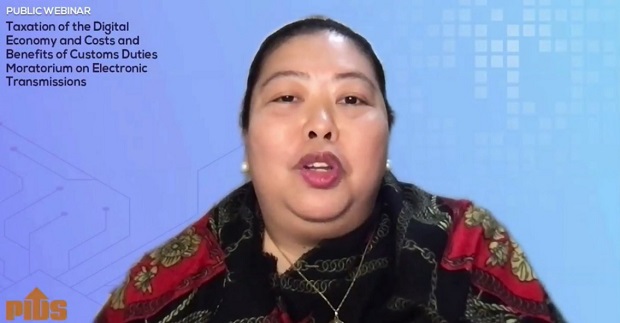Bureau of Internal Revenue (BIR) deputy commissioner Marissa Cabreros has stressed the need for taxation in the digital economy to level the playing field between traditional enterprises and digital businesses as the economy shifts from brick-and-mortar to virtual.

Cabreros told a workshop on trade facilitation that digital enterprises like traditional businesses are covered by the Tax Code and must comply with their tax obligations.
She also noted that there is an increased urgency to find new sources of revenue to fund the government’s efforts to recover from the adverse impact of Covid-19 and in anticipation of the increasing digitalization of the country’s economy.
Cabreros is optimistic that ongoing international and domestic initiatives including proposed tax legislation will help overcome the challenges and issues in taxing persons engaged in digital trade.
She pointed out that House Bill (HB) No. 372, which seeks to impose value-added tax (VAT) on digital transactions, is currently pending before the Senate Committee on Ways and Means.
The bill proposes to impose VAT on the online sale, barter, and exchange of goods and services, including the sale or lease of properties in the Philippines.
It also covers digital advertising, subscription-based services, and other online services that can be delivered through the Internet.
In addition, the bill obliges non-resident digital service providers (DSPs) to assess, collect, and remit the VAT on the transactions that go through their online platforms.
DSPs will also be liable to register for VAT if their gross sales or receipts for the past 12 months exceed P3 million or if their gross sales or receipts for the next 12 months are expected to exceed this threshold.
Cabreros said that under the current Tax Code, persons engaged in the digital economy remain, in general, subject to the following taxes: income tax, business tax, either VAT or percentage tax; and other appropriate national internal revenue taxes.
“The international initiatives such as the OECD Inclusive Framework focus mostly on closing tax loopholes to ensure multinational enterprises pay their fair share of taxes wherever they operate and generate profits,” said Cabreros.
“Having shifted your business in a digital economy does not mean you are free from taxation. We still have taxing rights over those transactions. The House bill hopefully will fix those gaps with the shifting of the traditional brick-and-mortar way of doing business,” Cabreros added.




